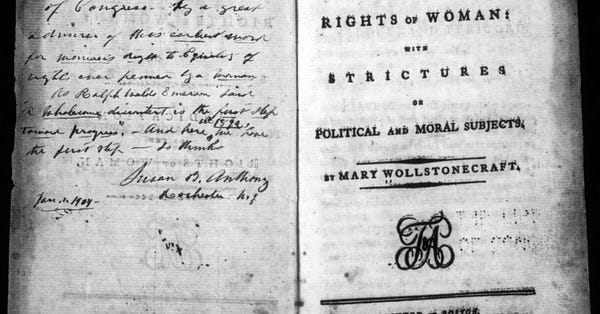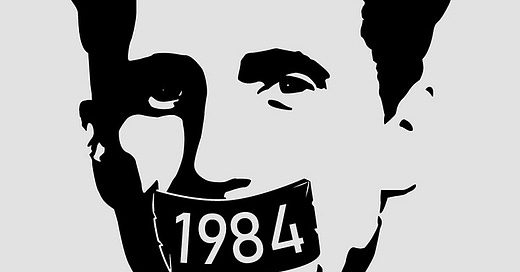When I announced the imminent release of Don’t Be a Feminist, Stanford’s Erik Brynjolfsson, tweeted back:


My response, to be blunt, is: The dictionary is wrong. Defining feminism as “the advocacy of women’s rights on the basis of the equality of the sexes” is advocacy disguised as lexicology.
Feminism is not remotely as bad as Stalinism, nor is the feminist movement’s intimidation against dissent remotely as harsh. Both movements, however, successfully corrupted dictionaries.
When Russian speakers said “socialism” and “capitalism,” most didn’t mean what Ushakov said. When English speakers say “feminism,” most don’t mean what Oxford says.
How do I know? As I’ve explained before:
[I]n this 2016 Washington Post/Kaiser Family Foundation survey, 40% of women and 67% of men did not consider themselves “feminists.” But over 90% of both genders agreed that “men and women should be social, political, and economic equals.” If Google’s definition of feminism conformed to standard English usage, these patterns would make very little sense. Imagine a world where 90% of men say they’re “bachelors,” but only 40% say they’re “unmarried.”
What would a non-argumentative definition of feminism look like? Ideally, feminists, non-feminists, and anti-feminists could all endorse it. If that’s asking too much, all these groups should at least be able to accept the proposed definition as a rough approximation of the position they affirm or deny. My preferred candidate:
feminism: the view that society generally treats men more fairly than women
What’s good about my definition?
First, the definition doesn’t include everyone who thinks that our society treats women unfairly to some degree. In the real world, of course, every member of every group experiences unfairness on occasion.
Second, a large majority of self-identified feminists hold the view I ascribe to them. Indeed, if someone said, “I’m a feminist, but I think society generally treats women more fairly than men,” most listeners would simply be confused.
Third, a large majority of self-identified non-feminists disbelieve the view I ascribe to feminists. If you think, “Society treats both genders equally well,” or “Society treats women more fairly than men,” you’re highly unlikely to see yourself as a feminist.
Soviet dictionaries made the rejection of socialism rhetorically uncomfortable. Modern dictionaries, similarly, make the rejection of feminism rhetorically uncomfortable. In both cases, we face an Orwellian situation, where the politically dominant side uses intimidation to mandate equivocation. Activists pressure non-activists to pay lip service to the official definition, while pushing scary policies based on the actual definition.
In 1984’s appendix on Newspeak, Orwell explained:
It was intended that when Newspeak had been adopted once and for all and Oldspeak forgotten, a heretical thought - that is, a thought diverging from the principles of Ingsoc - should be literally unthinkable, at least so far as thought is dependent on words.
We’re not there yet. I still have no trouble articulating my heretical thoughts. But the corruption of the dictionary definitely slowed the progress of Don’t Be a Feminist. I couldn’t analyze the facts until I clarified the language.
The good news is that if I did my job well, future arguments about feminism will be able to proceed at full speed.















How should we re-define the word "atheist"? It appears that 19% of Americans believe there is no god, but only 4% identify as atheists and 5% as agnostics.
https://www.pewresearch.org/fact-tank/2019/12/06/10-facts-about-atheists/
https://www.pewresearch.org/religion/2018/04/25/when-americans-say-they-believe-in-god-what-do-they-mean/
And while the number of people who don't believe in *any* higher power or spiritual force is close to 9%, it's less than half of the self-described agnostics, and only about 80% of the self-described atheists, leaving a substantial number who don't identify as either.
The chasm of meaning between the dictionary definition and how people actually use the term is what I regularly cite as the best example of the motte-and-bailey fallacy. If feminism really did just meant 'equality of the sexes', virtually everyone outside of the Mullahs of Iran and the like would be a feminist.